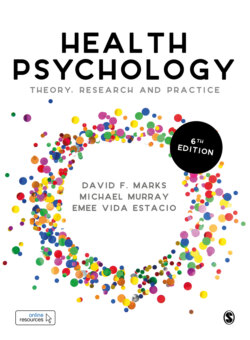Читать книгу Health Psychology - Michael Murray - Страница 90
На сайте Литреса книга снята с продажи.
Non-Western Views of Health Chinese views of health
ОглавлениеTraditional Chinese Medicine (TCM) is greatly influenced by the religion and philosophy of Taoism. According to this view, the universe is a vast and indivisible entity and each being has a definite function within it. The balance of the two basic powers of yin and yang governs the whole universe, including human beings. Yang is considered to represent the male, positive energy that produces light and fullness, whereas the yin is considered the female, negative force that leads to darkness and emptiness. A disharmony in yin and yang leads to illness. A variety of methods including acupuncture and herbal medicines can be used to restore this harmony. There are at least 13,000 medicinal substances with 50 fundamental herbs, including the roots, twigs and leaves of cannabis, ginseng, ginger, licorice, peony and rhubarb.
Confucianism is influential in the traditional Chinese views on health. Within this culture, human suffering is traditionally explained as the result of destiny or ming. Cheng (1997: 740) quotes the Confucian teacher Master Meng: ‘A man worries about neither untimely death nor long life but cultivates his personal character and waits for its natural development; this is to stand in accord with Fate. All things are determined by Fate, and one should accept what is conferred.’ An important part of your destiny depends upon your horoscope or pa-tzu. During an individual’s life, his or her pa-tzu is paired with the timing of nature. Over time these pairings change and create the individual’s luck or yun.
Buddhist beliefs are also reflected in Chinese medical belief systems. Good deeds and charitable donations, for example, are promoted. Heavenly retribution is expected for those who commit wrongs. This retribution may not be immediate, but it will be inevitable. An important concept in this respect is pao, which has two types: (1) reciprocity and (2) retribution (Cheng, 1997). In mutual relationships reciprocity is expected. When this does not occur some form of retribution will take place.
These influences are not only codified within Chinese medicine, but also influence everyday lay beliefs about health and illness in Chinese communities around the world. For example, Rochelle and Marks (2010) explored the extent of medical pluralism among Chinese people in London. The thematic analysis suggests that Chinese medicine and Western medicine were perceived as two systems of health provision and that these two systems could be used concurrently. Generally, the National Health Service was perceived to be difficult to use and concerns were expressed around communication and trust with health care providers due to language barriers. Similarly, qualitative research by Jin and Acharya (2016) suggests that yin–yang balance and ‘qi’ still influence practices related to medication adherence among people of Chinese descent in the USA. Narratives also suggest that Western and Chinese medicine have strengths and limitations that can counteract each other. Participants also discussed the importance of social support and how they coped with acculturation stress, especially when health care providers failed to understand their cultural practices and beliefs.
Like orthodox medicine, TCM raises ecological and ethical concerns. TCM is a private industry worth billions of dollars and the efficacy of the treatments is largely unknown. Many rare and endangered species currently face extinction owing to the harvesting of animal parts such as tiger bone, rhinoceros horn, turtle shell and seahorses, and the cruel conditions in which the animals used as a source of medicines are kept causes suffering, e.g., the harvesting of bile from thousands of captive Asiatic black bears, which are held in small cages. The bile is the main source of ursodeoxycholic acid, which is used to treat kidney problems and stomach and digestive disorders (Lindor et al., 1994). Cruelty to animals to generate medicines within TCM is paralleled by the use of animals in the testing of new medicines in orthodox medicine.
